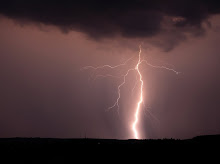
http://www.youtube.com/watch?v=eWeezUxIzaE
I have a new friend. She refers to herself as a ‘bohemian.’ She is the colorful outcome of a “mixed marriage.” She is delightful and lovely in so many ways, and I was puzzled by her portraying one aspect of her self-prescribed ‘bohemistic’ (not really a word) oddity:
“I’m not really black; the black community tells me I don’t really fit. I’m not really white; the white community tells me I don’t really fit. It’s interesting spending a good portion of your life trying define what’s fitting, about not fitting.”
I am intrigued with the word bohemian. It sounds so…so…different…organic… earthy…primal…so 'bohemic' (not really a word).
I couldn’t resist taking off my shoes and socks, rolling up my pant legs and climbing into that vat of newly harvested fat, juicy syntactical grapes. I imagined myself stomping the fruits, like Lucy Ricardo dressed in 'gypsyesque' (not really a word) and up to one of her latest escapades. Giggling, hands on hips, high-stepping I become more intoxicated with every step that detonates the technicolor bubbles.

So, I did what any other classic scholar, teacher, academician and A.D.Dist (Any Distraction Accepted) would do; I Googled etymology of the word “bohemian.” Which led me to the world’s most esteemed, resourced, studied, gathered, knowledgeable and sagest reference: Wkipedia.
Bohemian
From Wikipedia, the free encyclopedia
“For other uses, see Bohemian (disambiguation). Bohemians are the people of Bohemia, in the Czech Republic, inhabitants of the former Kingdom of Bohemia, located in the modern day Czech Republic. The ancient Kingdom of Bohemia was absorbed into the Habsburg Empire after 1527 and came under the control of Vienna.
The name "Bohemia" derives from the Latin term for the Celtic tribe inhabiting that area, the Boii, who were called Boiohaemum in the early Middle Ages. The word "Bohemians" was never used by the local Czech (Slavic) population. In Czech, the region since the early Middle Ages has been called only Čechy ("Bohemia") or Království české ("Kingdom of Bohemia"), and its mainly Czech-speaking inhabitants were called Čechové (in modern Czech Češi).
In other European vernaculars and in Latin (as Bohemi), the word "Bohemian" or a derivate was used to designate all inhabitants of Bohemia. If the Czech ethnic origin was to be stressed, combinations like "Bohemian of Bohemian language" (Čech českého jazyka), "a real Bohemian" (pravý Čech) etc. were used.
It was not until the 19th century that other European languages began to use the word "Czechs" (in English – Tschechen in German, Tchèques in French) in a deliberate (and successful) attempt to distinguish between Bohemian Slavs and other inhabitants of Bohemia (mostly Germans). Currently, "Bohemians" is still used when there is need to distinguish between inhabitants of the western part of the Czech Republic (Bohemia), and the eastern (Moravia) or the north-eastern part (Silesia).”
Joan of Arc, Rasputin, William Wallace (aka Mel Gibson in kilts), Albert Einstein, Papa Hemmingway, Pee Wee Herman, Howard Hughes, Julius Ceasar, General Patton, Steven Colbert, Timothy Leary, Dr. Phil.

Nope. None. Nada. And then, the payoff. It reads:
“The term "Bohemian" as related to Bohemianism – i.e. describing the untraditional lifestyles of marginalized and impoverished artists, writers, musicians, and actors in major European cities – has little or nothing to do with the above, though, often leading to confusion.”
OK…I guess. The last line really stabs at the heart of this cultural catch-all definition (maybe even “drive-by” judgment); the metaphoric stones we oftentimes cast upon those among us that don’t quite fit the accustomed, accepted, comfortable, safe, predictable, textbook, defined category. Life’s Artists: Expressionists. Dreamers. Mathematicians. Architects. Engineers, Philosophers. Authors. Scientists. Activists.
Like: Van Gogh, Da Vinci, Isaac Newton, Frank Lloyd Wright, Steve Jobs (OK, Bill Gates, too), John Milton, Plato, Charles Darwin, Harvey Milk.

Or, even more questionable “bohemaniacs” (not really a word) of “their time” in history.
Like: Martin Luther King Jr., Ghandi, Nelson Mandela, Martin Luther, Sir Thomas Moore.

Or, likely the most infamous “boheretics” (not really a word) of all.
Like: Abraham. Moses. Isaiah. David. John the Baptist. Jesus.

So, where does that leave the rest of us artists, expressionists, dreamers and assorted misfits? Dreaming. Trying. Believing. Dancing. Giggling as the juices squeeze between our toes. All that remains are new skins of wine.

Gypsies, tramps and thieves? Yes.
Her? Me? You? Yes.
Bohemian? No. (Not really a word.)
You say Bohemian. I say Bohermian. Let’s call the whole thing off!
For emphasis -
(b)
Bohemian Footnote:
I knew there was another reason why I love living and “fitting” in Minneapolis. The following is for real from Wikipedia:
“‘Bohemian Flats’ is the informal name given a residential area of what is now Minneapolis, Minnesota. The area was the low lying terrace deposit on west bank of the Mississippi River, a short distance southeast of St. Anthony Falls. About the time Minneapolis was incorporated (1867), immigrants seeking employment in the city or at the mills at St. Anthony settled there. In 1884, the first Washington Avenue Bridge was constructed over the area, linking central Minneapolis with the campus of the University of Minnesota, on the east bank of the river.”




So, my punny side wants to know...were the Bohemians in any way responsible for naming a group of islands the Bahamas? They are a little out there, aren't they?
ReplyDelete